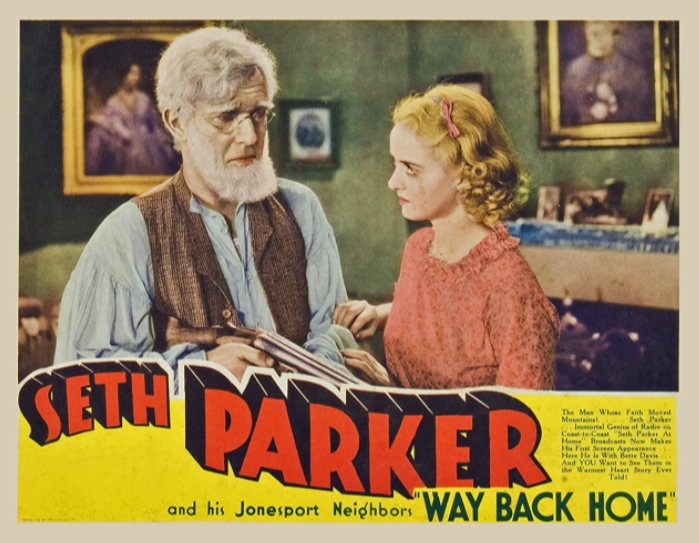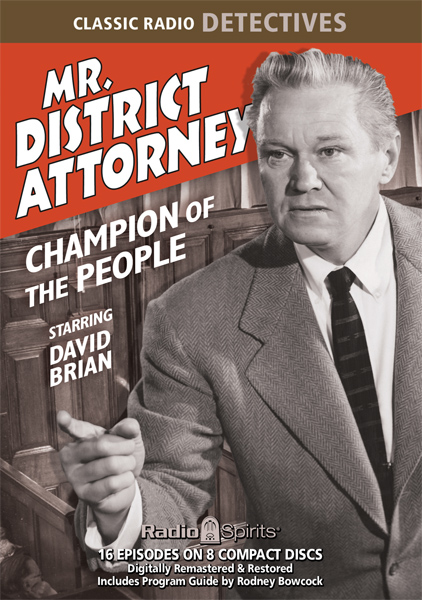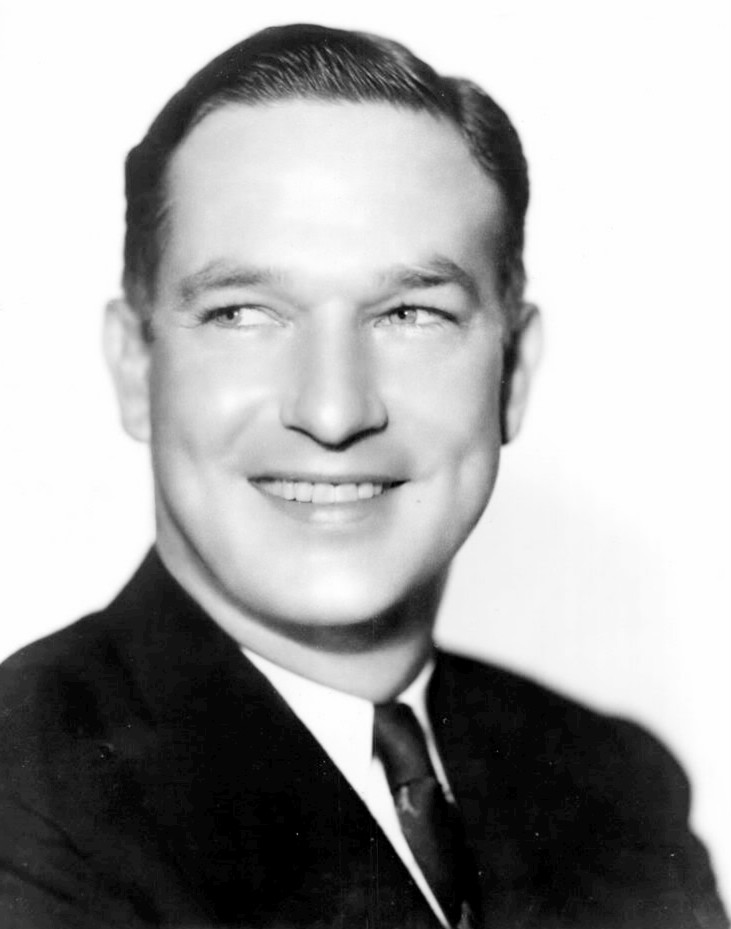Happy Birthday, Phillips H. Lord!
Posted by Ivan G. Shreve, Jr. on Jul 13th 2021
Triskaidekaphobia. I didn’t make this word up; it’s the technical term for fear of the number “13.” The man born Phillips Haynes Lord in Hartford, Vermont on this date in 1902, however, pooh-poohed any such superstitious nonsense—owing to the fact that he was born on the 13th and that there are thirteen characters in “Phillips H. Lord.” To carry these coincidences further, Lord made his radio debut on June 13, 1928 and later signed the contract for his radio success, Uncle Abe and David, on June 13, 1930. Uncle Abe and David aired twice daily, six days a week, and with Lord’s other weekly hit, Sundays at Seth Parker’s, the two combined to make thirteen. (There were thirteen actors in the Seth Parker cast. I’m going to stop now before things get really silly.)
Phillips H. Lord was born the son of a Vermont clergyman…but didn’t hang around the Green Mountain State too long. He was still an infant when the Lord family moved to Meriden, Connecticut as his father was hired to be the pastor of a local church. Phil was educated at the prestigious Phillips Academy in Andover, Massachusetts (whose alumni include U.S. Presidents George H. W. Bush and George W. Bush) and attended Bowdoin College in Brunswick, Maine. While at Bowdoin, Lord became quite the entrepreneur to ensure he could pay his way. He started several businesses, including a book-selling operation and a taxicab company. After graduation, the 22-year-old Lord talked a Plainville, Connecticut high school into hiring him as their principal–the youngest administrator in the country.
Phillips H. Lord could have settled for a life of telling juveniles not to run in the halls—yet he was looking for a lot more. He embarked on a number of job adventures including confectioneries and publishing. Radio would prove to be the perfect vocation for Phil’s ambition; Lord started writing scripts (admittedly, he hadn’t much experience) and submitting them to WTIC in Hartford. He would create several successful programs in this fashion: Uncle Abe and David (1930-31), The Stebbins Boys (1931-32), The Old Country Doctor (1932-33), and the most popular at that time, Sundays at Seth Parker’s, which premiered on March 3, 1929 and eventually moved nationally to NBC.

Phillips H. Lord credited his real-life grandfather, Hosea Phillips, as the inspiration for “Seth Parker,” a homespun New England clergyman and philosopher who invited friends into his home weekly for hymn-singing and general good fellowship. Though in his 20s, Lord donned white chin whiskers to play Parker himself, joined by a cast that included Effie Palmer (as Ma Parker) and future Mr. Keen star Bennett Kilpack (as Cephus). Praised by ministers and beloved by mid-American listeners, Seth Parker made Phillips H. an incredibly wealthy man, with the radio series inspiring books, records, a stage play, and a 1931 R-K-O feature film, Way Back Home (providing Bette Davis with one of her early cinematic showcases).
Rich and restless, Phillips H. Lord purchased a four-masted, 186-foot schooner which was christened The Seth Parker…and which would function as a floating studio as Lord headed off on a two-year around-the-world cruise, broadcasting his program via shortwave. The Cruise of The Seth Parker, sponsored by Frigidaire, premiered over NBC on December 5, 1933 and while it initially retained the popularity of the earlier series there were (if you’ll pardon the painful pun) rough seas ahead. There were skirmishes with British officials in the West Indies, and word began to leak out about the raucous on-board parties featuring wine, women, and songs not found in the best-selling Seth Parker hymnals. All of this unfortunate PR reached a crescendo when The Seth Parker was felled by a South Seas gale in February of 1935. Though Lord would be later accused of staging the incident as a stunt, Frigidaire did not renew their sponsorship and Seth Parker, despite two later runs on the Blue network in 1935-36 and 1938-39, never really regained the support and popularity of its early radio run.
Undaunted, Phillips H. Lord decided he had milked the “salvation” angle to its fullest extent and, inspired by popular “gangster” films like The Public Enemy (1931) and Scarface (1932), introduced radio audiences to the “sin” side of the equation when G-Men premiered over NBC Blue on July 20, 1935. The initial premise of the program featured stories concentrating on the notorious “outlaws” who were then making newspaper headlines: John Dillinger, “Machine Gun” Kelly, Bonnie and Clyde, “Pretty Boy” Floyd, etc. Although Lord initially received cooperation from J. Edgar Hoover, the director of the Federal Bureau of Investigation soon objected to the show’s heavy concentration on gunplay and withdrew his support. Cancelled in October, G-Men returned in January of 1936 on CBS with a new and now-legendary title: Gang Busters. It proved to be one of Phillips H.’s most durable creations, making the rounds on all four networks until November 27, 1957.
Gang Busters established Phillips H. Lord as radio’s king of “law-and-order.” He co-created the long-running Mr. District Attorney (1939-53), and later crime-themed programs to emerge from the House of Lord include Counterspy (1942-57), Policewoman (1946-47), and Treasury Agent (1947-57). Phil was also the mastermind behind the daytime drama By Kathleen Norris (1939-41) and the popular We, the People (1936-51)—described by author John Dunning as “a singular mix of humor, pathos, tragedy, sentiment, Hollywood glamour, and old-fashioned melodrama.” Lord’s additional radio credits include American Novels, Author’s Playhouse, The First Nighter Program, Johnny Presents, and Sky Blazers.
Phillips H. Lord benefitted from a most successful radio career…and he would also witness those properties blossom outside the aural medium as well. For example, Gang Busters would be the subject of a memorably exciting Universal motion picture serial in 1942, and a decade later had a brief run on television, alternating weekly with Dragnet. Mr. District Attorney also got the small screen treatment (in 1951-52, and again in 1954) after earlier inspiring silver screen versions in 1941 (part of a brief Republic Pictures franchise) and 1947. Counterspy was featured in two Columbia Pictures releases in 1950. Lord retired for a well-deserved rest and left this world for a better one in 1975 at the age of 73.

Radio Spirits offers that aforementioned Gang Busters serial for purchase. We’ve also got a vintage Gang Busters broadcast on our gumshoe potpourri set Great Radio Detectives, and you’ll find collections of Mr. District Attorney episodes on Mr. District Attorney and Champion of the People. In our digital downloads store, check out a pair of Gang Busters collections: Cases of Crime and Crime Wave. You’ll also find episodes of Gang Busters and Treasury Agent on Police and Thieves: Crime Radio Drama and installments of Counterspy on Great Radio Spies. Happiest of birthdays to Phillips H. Lord!

